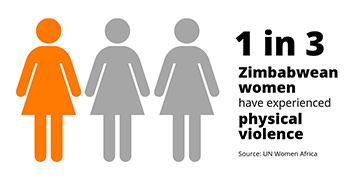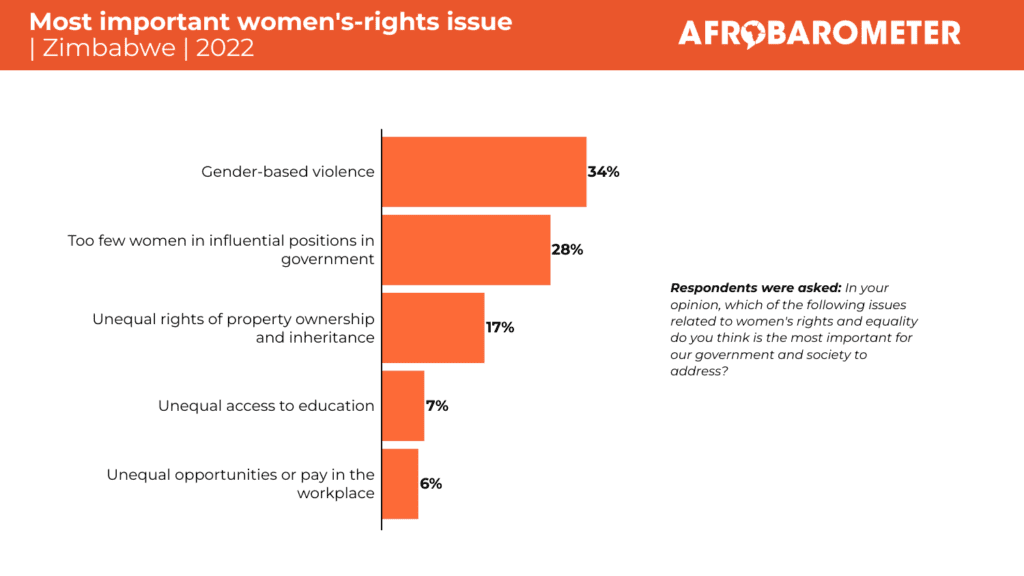Gender-based and domestic violence crimes must be punished severely
The recent murder of Simosenkosi Sibanda by her husband in Bulawayo has exposed the scourge of gender-based and domestic violence (GBV) in Zimbabwe.
Simosenkosi (27) was allegedly stabbed to death by her husband, Dingani Sibanda, after a domestic dispute this October. Dingani allegedly assaulted Simosenkosi before he fled the scene, leaving the woman’s seven-month-old baby screaming next to her lifeless body.
Simosenkosi became one of the many victims of GBV who have lost their lives or suffered physical and psychological harm at the hands of their intimate partners or family members.

Human Rights Violations
Furthermore, GBV is a serious human rights violation that affects women disproportionately. It is rooted in gender inequality, discrimination and patriarchal norms that devalue and oppress women. GBV has negative impacts on the health, dignity, security and autonomy of its survivors. It also hinders their participation in social, economic and political spheres.
According to the Zimbabwe Demographic and Health Survey of 2015, 35% of women aged 15-49 have experienced physical violence since age 15. Whilst, 14% have experienced sexual violence at some point in their lives. The prevalence of child marriages of women in the same age range who married before age 18 was highest in Mashonaland Central (50%) and lowest in Bulawayo (14%). Persons with disability are also at great risk of GBV. The gender and disability mix increases the risk of violence for women, girls as well as their caregivers.
Additionally, the COVID-19 pandemic also exacerbated the situation of GBV in Zimbabwe. As lockdown measures have increased the exposure of women and girls to abusive partners and relatives. While limiting their access to support services and justice. The Women’s Coalition of Zimbabwe reported a surge in cases of GBV during the lockdown period, with 764 cases recorded between March and June 2023.

RELATED CONTENT: Family demands lobola upfront to bury copse.
Legal Framework
The legal framework for addressing GBV in Zimbabwe is inadequate and ineffective. The Domestic Violence Act of 2007 provides for the protection and relief of victims of domestic violence. However, it does not criminalize domestic violence as a specific offence. Instead, it relies on existing criminal laws such as assault, rape, murder, etc., which do not capture the full extent and nature of domestic violence.
Moreover, the implementation and enforcement of the law is hampered by various challenges. Challenges such as lack of awareness, resources, coordination and political will among relevant stakeholders.
The Criminal Law (Codification and Reform) Act of 2004 criminalizes various forms of sexual offences, such as rape, indecent assault, sexual harassment, etc.,. Relactently, it also has gaps and shortcomings that undermine the rights of survivors. For instance, the definition of rape is narrow and excludes marital rape, which is a common form of GBV in Zimbabwe. The law also does not recognize other forms of sexual violence, such as forced marriage, female genital mutilation, trafficking for sexual exploitation, etc.

Persuit of Justice
The justice system in Zimbabwe is also inaccessible and insensitive to the needs and rights of GBV survivors. Many survivors face barriers such as stigma, fear, intimidation, corruption, lack of legal aid, lack of protection orders, lack of shelters, lack of medical and psychosocial support, etc., that prevent them from reporting and pursuing their cases.
Those who manage to access the justice system often encounter delays, secondary victimization, discrimination and bias from police officers, prosecutors, magistrates and judges. The sentences imposed on perpetrators are often lenient and inconsistent, failing to reflect the gravity of the offences and deter future crimes.
The case of Simosenkosi is a reflection of the widespread and systemic problem of GBV in Zimbabwe that requires urgent and comprehensive action from all actors. The government must review and reform its laws and policies to ensure that they comply with international human rights standards and best practices on GBV prevention and response.

Advocate for Change
The justice system must be strengthened and capacitated to deliver timely, effective and survivor-centered justice to GBV survivors. The civil society must continue to raise awareness, advocate for change and provide support to GBV survivors. The media must report responsibly and ethically on GBV issues, avoiding sensationalism, victim-blaming and trivialization. The society must challenge and transform the harmful attitudes and behaviors that perpetuate GBV against women and girls.
Lastly, GBV is not a private or personal matter. It is time to end the culture of impunity and silence that enables GBV to thrive. It is time to demand justice for Simosenkosi and all other victims of GBV in Zimbabwe.
#News in Bulawayo #News in Zimbabwe Artist Arts BCC Bulawayo Bulawayo City Council Bulawayo economy Bulawayo industry Bulawayo news Bulawayo Police Bulawayo Water Bulawayo Water Crisis Bulawayo Women entrepreneurship Business Women Cholera Community Culture Currency Drug Abuse Drugs Economy Farmer Farmers Farming Informal Sector Informal Traders Mining MSMEs Music News in Bulawayo News in Zimbabwe Police Police in Bulawayo Vendor Vendors water Water Crisis Water Shortage water supply issue Women entrepreneurship ZESA Zimbabwean economy Zimbabwe news Zimbabwe water crisis ZRP
Our stories told by us!
Join us for all News in Bulawayo and Bulawayo News in Zimbabwe.












